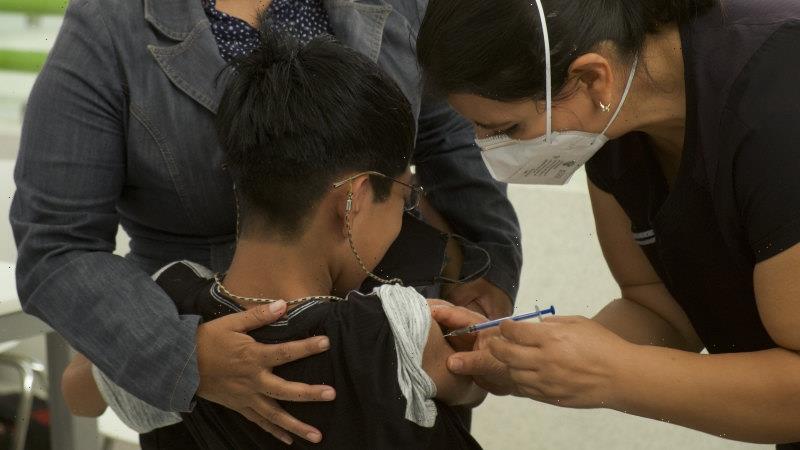For our free coronavirus pandemic coverage, learn more here.
An early and unusual discovery paved the way for research that may explain one of the pandemic’s enduring mysteries: why children are at much less risk of serious illness and death from COVID-19.
In a crisis that has killed millions, children are much less vulnerable. They are at less risk of serious illness from COVID-19 compared to adults. This has remained the case even with the rise of the Delta variant.
Of 765,320 Americans killed by COVID-19, just 605 were 17 or younger, despite this group having the lowest vaccination rates. In Australia, the virus has claimed the lives of just two people under 19.
This has come as a surprise to scientists who study childhood illnesses.
A healthcare worker injects a boy with a dose of the Pfizer COVID-19 vaccine in Mexico.Credit:AP
“We know children tend to be quite vulnerable to most respiratory viruses. Think about influenza. But it seems to be the opposite for COVID,” said the Murdoch Children’s Research Institute’s Dr Melanie Neeland.
Dr Neeland heads an immunity research program at the institute. Early in the pandemic, as the world was still learning about the virus, she found herself studying the immune responses of one of the first families to become infected with COVID-19 in Australia.
The case was unusual. The adults got sick, but the children – despite spending all day with their parents – never tested positive.
Indeed, this odd feature of the virus led scientists early in the pandemic to believe children were simply far less likely to get infected – something we now know is only partially true.
But Dr Neeland’s data, published in Nature Communications last year, contained a wrinkle.
When her team studied the blood of the children, they found their innate immune system – a powerful but less-known part of the body’s immune weaponry – was all fired up, despite the children testing negative to the virus.
The “adaptive” immune system involves all the well-known actors, like antibodies and T cells. We hear less of the innate system, in part because less is known about it.
“It is our first line of defence against viruses. It involves a very quick, early activation of the immune system that aims to clear the virus as quickly as possible and limit the spread,” Dr Neeland said.
The system stations neutrophils and monocytes in the nose, throat, lungs and blood. These cells can spot and gobble up – Pac-Man-like – invading viruses.
In a further study of 48 children, published in Nature Communications in February this year, Dr Neeland showed that in children exposed to COVID-19, the innate system seemed to be doing a great job cleaning up the virus before it could get deep into their bodies and make them seriously sick.
This is unusual. Children have stronger innate immune systems than adults, but that does not stop them getting seriously sick from the flu. “It’s something about this particular virus,” Dr Neeland said.
What that might be is “the million-dollar question” and the subject of much research.
Children also enjoy a second advantage: they don’t suffer from ‘original antigenic sin’, said Dr Neeland.
SARS-CoV-2, the virus that causes COVID-19, is not the first coronavirus to infect humans. Four coronaviruses are among the viruses that cause the common cold; they make up about 5 per cent of all acute throat infections. On average, most children will be infected with – and clear – a coronavirus infection before age 4.
Confronted with SARS-CoV-2, it seems adult immune systems accidentally produce antibodies for coronaviruses that have encountered first. Young children don’t have this issue, and produce powerful and directly-targeted antibodies against SARS-CoV-2, Dr Neeland said.
Fascinating answers to perplexing questions delivered to your inbox every week. Sign up to get our new Explainer newsletter here.
Most Viewed in National
From our partners
Source: Read Full Article

